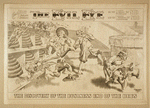The word dementia has its root in the Latin dementare, meaning "senseless." Yet I have found my senses heightened folllowing the loss of intellectual force. My responsiveness to odor is so strong that sometimes I think I've become a beagle. Intense spices---Indian, Thai, Mexican--feel exaggerated in their richness; I can become exhausted and confused by eating these foods. My skin often tingles, sometimes for no discernible reason, sometimes in response to the slightest stimulus. The same process that stripped me of significant intellectual capacity and numbed my mind seems to have triggered an almost corresponding heightening of sensory and emotional awareness. Sometimes this can be a maelstrom, sometimes a baptismal immersion. So when "demented" breaks down into "de" for "out of" and "ment" for "mind"--literally "out of mind,"---I interpret the verbal construction as having positive connotations. Not loony, but liberated. Forced out of the mind, forced away from my customary cerebral mode of encounter, I have found myself dwelling more in the wilder realms of sense and emotion. Out of mind and into body, into heart. An altered state.
--Floyd Skloot, "Wild in the Woods: Confessions of a Demented Man" in In the Shadow of Memory (2003)
In 1988, Floyd Skloot contracted a virus that invaded and damaged his brain. Here he describes his loss of "intellectual capacity" in terms of a gain in "emotional awareness."" Skloot's account is not a saccharine one, however, and his description of his enhanced sensorial perceptions and feelings (throughout the book as a whole) is at turns ironic, humiliating, surprising, bittersweet. I love his attentiveness here to the etymology of dementia and the way that his reading of the word through the lens of his own experience draws our attention to the ways in which we tend to privilege the intellect. If clarity of thinking illuminates our world, it does so only by limiting what we can perceive.
Saturday, May 15, 2010
Dementia
Labels:
bodies,
brain,
disease,
flavor,
food,
fragrance,
intelligence,
touch,
words/definitions
Subscribe to:
Post Comments (Atom)






No comments:
Post a Comment